Merry Christmas, Mr. Lawrence (1983), directed by Nagisa Oshima, is an iconic Japanese-British war film blending powerful wartime drama with haunting undercurrents of forbidden affection. Set during World War II on the Indonesian island of Java, it stars David Bowie, Ryuichi Sakamoto, Tom Conti, and Takeshi Kitano.
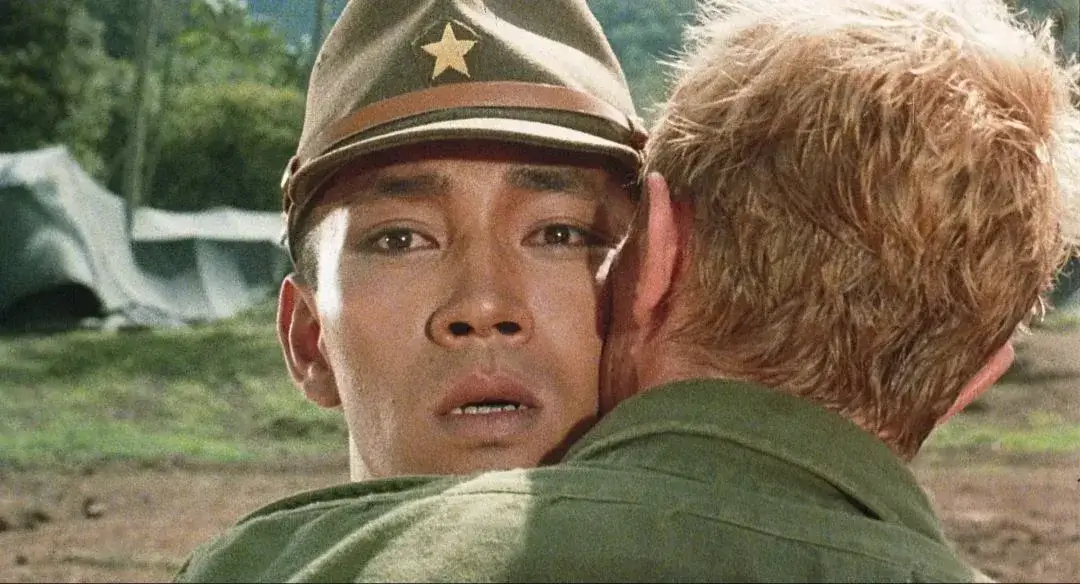
The film is adapted from Laurens van der Post’s novel The Seed and the Sower. With its themes of cultural collision, suppressed desire, and the personal cost of war, it has become a classic in LGBTQ+ cinema history.
Merry Christmas Mr. Lawrence Official Trailer
Merry Christmas Mr. Lawrence Summary | |
|---|---|
| Title: | Merry Christmas Mr. Lawrence |
| Movie Info: | Japan (1983) |
| Length: | 123 minutes |
| Is Merry Christmas Mr. Lawrence BL? | Yes, there's a BL romance. |
| Genre: | Drama, Boy's love, War |
Plot
In a Japanese prisoner-of-war camp in 1942, British soldier Jack Celliers (David Bowie) is held captive under the authority of Captain Yonoi (Ryuichi Sakamoto) and Sergeant Hara (Takeshi Kitano). While Hara enforces brutal discipline, Yonoi, a stoic and elegant officer, becomes captivated by Celliers’s rebellious spirit and charisma.
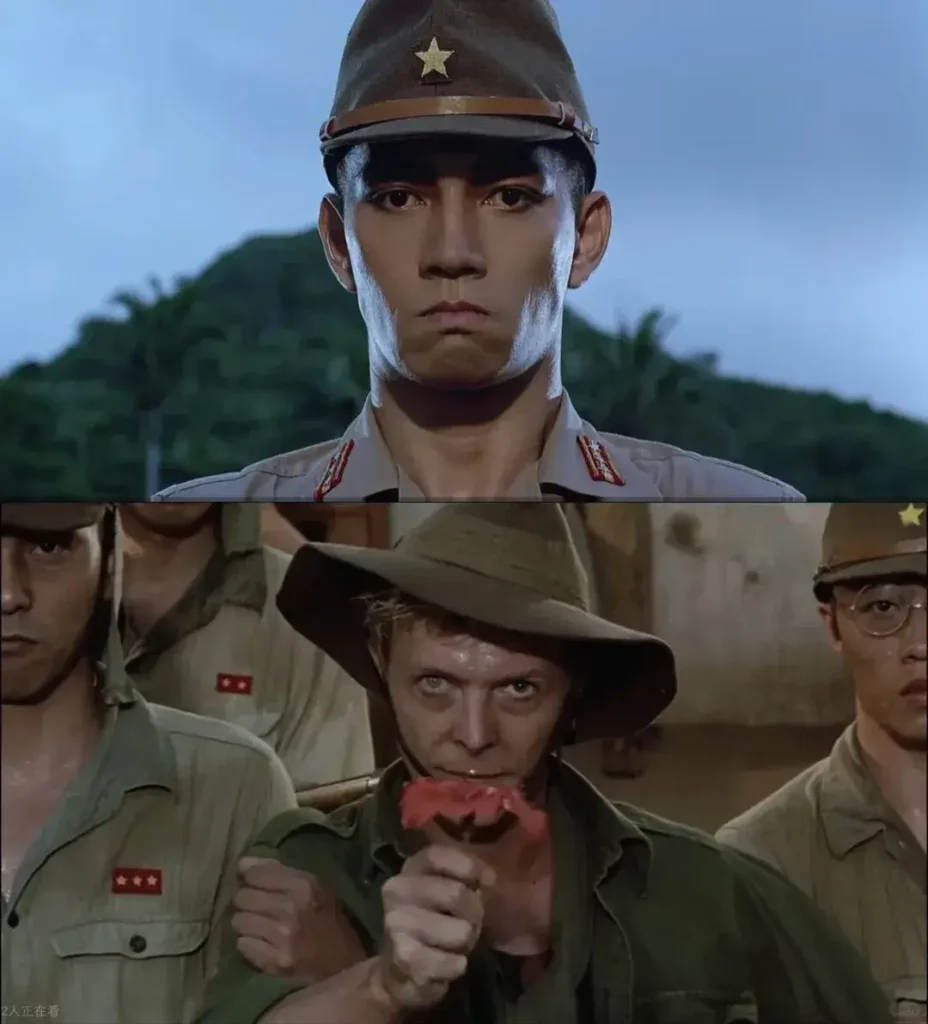
The tension between duty, honor, and personal longing unfolds through the eyes of Lt. Colonel Lawrence (Tom Conti), who serves as an intermediary between the prisoners and their captors. The film delicately explores the growing, unspoken emotional connection between Yonoi and Celliers—a connection doomed by cultural expectations and the merciless reality of war.
Ultimately, Merry Christmas, Mr. Lawrence is not just a story of captivity and resistance; it is a profound meditation on human frailty, forbidden longing, and the tragedy of unexpressed love.
Merry Christmas Mr. Lawrence Cast
Charactor

Jack Celliers
Played by David Bowie A rebellious British soldier whose courage and beauty leave a lasting impact on Yonoi.
David Bowie
David Bowie, already an iconic musician, brought his ethereal presence to the role of Celliers. His ability to convey vulnerability behind a stoic facade made the performance unforgettable.
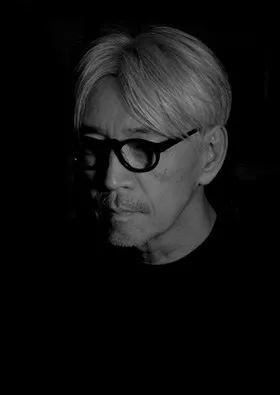
Captain Yonoi
Played by Ryuichi Sakamoto (坂本龍一) A strict but conflicted Japanese officer, torn between duty and forbidden emotions.
Ryuichi Sakamoto
Sakamoto, a legendary composer and musician, made an indelible acting debut. His restrained portrayal of Yonoi remains a benchmark for depicting internalized emotion. He also composed the film’s iconic score.

Lt. Colonel John Lawrence
Played by Tom Conti The compassionate British officer who navigates between two clashing cultures.
Tom Conti
Tom Conti brought depth and empathy to the role, grounding the film’s philosophical reflections on war and humanity.
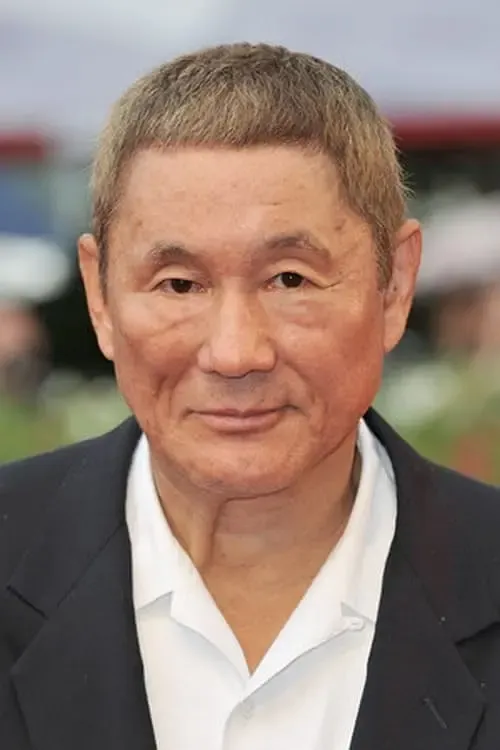
Sergeant Hara
Played by Takeshi Kitano, A brutal yet childlike figure who surprisingly shows moments of kindness.
Takeshi Kitano
This early role hinted at Kitano’s future success as an actor-director known for balancing violence with vulnerability.
Director
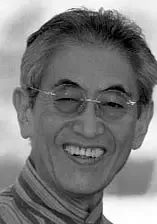
Nagisa Oshima
Nagisa Oshima (1932–2013) was one of Japan’s most revolutionary directors, known for his confrontational and politically charged films. His best-known works include "In the Realm of the Senses" (1976), a controversial and explicit portrayal of obsessive love, and "Empire of Passion" (1978), which earned him the Best Director Award at Cannes. In Merry Christmas Mr. Lawrence, Oshima explores complex themes like forbidden desire, cultural collision, and the contradictions of honor and humanity during wartime. Unlike his earlier erotic works, this film blends restrained storytelling with raw emotional undercurrents, showcasing his ability to master both shock and subtlety.
Merry Christmas Mr. Lawrence Review
Review
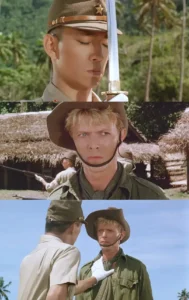
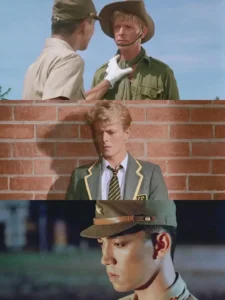
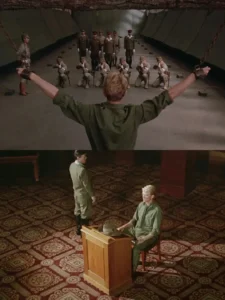
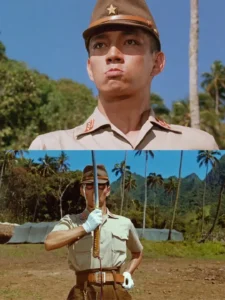
🔹 Story Rating: 5/5
The narrative masterfully intertwines wartime brutality with deeply personal emotional conflicts. Yonoi’s internal struggle between military honor and human affection for Celliers creates a haunting, slow-burn tension that lingers far beyond the final frame.
🔹 Acting Rating: 5/5
David Bowie delivers an understated yet magnetic performance, embodying Celliers’s complex mix of guilt, defiance, and vulnerability. Ryuichi Sakamoto, in his first acting role, exudes a quiet intensity that makes Yonoi’s suppressed emotions devastatingly palpable. Takeshi Kitano and Tom Conti provide grounded, deeply human counterpoints.
🔹 Chemistry Rating: 5/5
Without a single overt romantic gesture, the chemistry between Bowie and Sakamoto crackles with unspoken desire. Cultural taboos restrain their passion, as evidenced by their stolen glances, subtle body language, and the unforgettable “forbidden kiss” scene.
🔹 Production Rating: 4/5
Shot with striking visual minimalism, the tropical settings contrast beautifully with the characters’ internal turmoil. The atmospheric soundtrack—especially Sakamoto’s composition “Forbidden Colours”—elevates every moment with aching beauty.
🔹 Ending Rating: 5/5
The ending leaves a bittersweet, resonant ache. As Yonoi pays silent tribute to Celliers by preserving a lock of his hair at a Shinto shrine, the themes of love, guilt, and regret reach their heartbreaking culmination.
Hot Scenes
Yonoi’s courtroom gaze: The moment Yonoi first lays eyes on Celliers during his trial, framed in silence, is a breathtaking depiction of instant, forbidden attraction.
“Wear your clothes!” scene: Yonoi’s flustered command when seeing Celliers’ bare back reveals his suppressed longing.
Celliers’s flower-eating act: A rebellious act where Celliers eats a flower in front of Yonoi, exuding defiance and allure.
The Christmas pardon: Sergeant Hara’s surprising act of clemency during Christmas night embodies unexpected humanity.
The kiss before execution: Celliers’s final act of defiance—kissing Yonoi on the cheeks—is one of cinema’s most subtle yet powerful declarations of forbidden love.
Yonoi’s tribute: Yonoi silently cutting Celliers’ golden hair and preserving it symbolizes undying love and eternal regret.
Merry Christmas Mr. Lawrence Information
Awards
36th Cannes Film Festival – Official Competition, Palme d’Or Nominee
1984 Kinema Junpo Awards – Reader’s Choice Best Film (第57回キネマ旬報ベスト・テン 読者選出第1位)
1984 Mainichi Film Awards –
Best Film
Best Director (Nagisa Oshima)
Best Screenplay
Best Music Score (Ryuichi Sakamoto)
Best Supporting Actor (Takeshi Kitano)
Where to Watch
Related Links
Explore More BL Content
